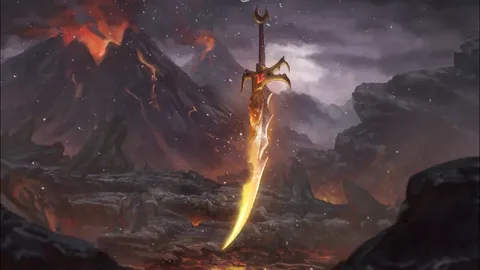Quick Links
Useful Links
- Services
- Privacy Policy
- Terms & Condition
- Contact Us
Get in Touch with Us
- support@dummyEmail.com

In the vast landscape of fantasy and LitRPG, heroes are often shaped by fate—destined for greatness, blessed with supernatural gifts, or heirs to lost kingdoms. But what happens when a protagonist is given nothing? When the universe itself seems determined to crush him? Sword, Crown, and Quill, the latest novel by Allen “Reign” Odom, challenges these tropes with a protagonist who is neither chosen nor gifted with mystical power. Malick Barnes is not a prince, not a warrior blessed by the gods, and not even someone the world considers worthy of existence. And yet, through sheer intelligence, resilience, and determination, he forges his own legend in a world that wants to erase him.
At its core, Sword, Crown, and Quill is a rebellion against the traditional hero’s journey. Malick isn’t handed a magical sword or a prophecy to fulfill; instead, he is thrust into an ether-driven world where he is considered a “dreg”—an outsider deemed unworthy of power. In this society, ether determines status, ability, and even survival, making Malick’s lack of it an immediate death sentence. Yet, rather than succumbing to despair, he turns his disadvantage into a weapon. His story is not about fulfilling fate—it’s about proving fate wrong. Every step forward is earned, not given, making his triumphs all the more satisfying.
From the very first pages, Odom introduces readers to a world that thrives on exclusion. Ether is the dominant force that governs everything, from the cities’ glowing runes to the powerful artifacts wielded by the elite. Malick, a brilliant but ordinary engineer from Earth, is thrown into this world not as a destined hero, but as an anomaly. The very fabric of this society is constructed to keep people like him at the bottom—an outsider, a mistake. The concept of “dregs”—those who lack etheric power—mirrors real-world themes of systemic oppression and social hierarchy. Malick is immediately branded as one of these outcasts, but instead of surrendering to his fate, he begins to outthink the system.
While other characters in the novel wield supernatural abilities or dominate through sheer etheric strength, Malick’s greatest weapons are his mind and adaptability. As an engineer, he understands mechanics, systems, and problem-solving. In a world where magic is the law of the land, he finds ways to manipulate technology and tactics to carve a path forward. Odom crafts a protagonist who embodies the power of ingenuity, proving that intelligence can be just as formidable as magic.
Throughout the novel, Malick’s scientific approach to problems leads to game-changing innovations. When others rely on ether, he finds mechanical workarounds. When opponents underestimate him, he turns their assumptions against them. His victories come not from overwhelming force, but from cunning and persistence. This contrast between science and magic—between structured logic and raw supernatural ability—adds a compelling dynamic to the story. Sword, Crown, and Quill doesn’t just subvert the “chosen one” narrative; it redefines what true power looks like.
Beyond its fantasy elements, the novel resonates on a deeply personal level for readers who have ever felt like outsiders. Malick’s struggle is universal: he is constantly told that he does not belong, that he will never be enough, and that the world has no place for him. His journey echoes real-world themes of perseverance against systemic barriers, making his triumphs feel personal. In many ways, Malick serves as a stand-in for anyone who has had to work twice as hard for half the recognition. His victories are hard-fought, and his survival is never guaranteed. This emotional weight makes Sword, Crown, and Quill more than just a thrilling fantasy novel—it makes it a story about the power of resilience.
While Sword, Crown, and Quill delivers exhilarating action and breathtaking world-building, it never lets readers forget the cost of survival. Malick does not gain power without sacrifice. He suffers, fails, and is constantly reminded of his fragility in a realm that sees him as expendable. The tension in the novel is relentless—there are no easy victories, and every small success feels monumental because of the brutal odds against him.
Yet, through it all, Malick remains fiercely human. He does not become a cold, detached strategist, nor does he let bitterness consume him. He fights not just for himself, but for others like him—those the system has deemed unworthy. His struggle is not just for survival; it’s for change. And in that struggle, Odom crafts a protagonist who embodies defiance in the face of impossibility.
For those seeking a fantasy novel that breaks conventions, delivers relentless tension, and forces its hero to think his way to victory, Sword, Crown, and Quill is an absolute must-read. Allen Odom doesn’t just tell a story—he reinvents what it means to be a hero. In a genre saturated with chosen ones and prophecy-driven narratives, Malick Barnes stands out as an example to the power of the unchosen. He is a reminder that greatness is not something bestowed by fate, but something carved out through will, intellect, and an unbreakable spirit. Sword, Crown, and Quill is more than just a novel—it’s a revolution in fantasy storytelling.
we’ll send you a nice letter once per week. no spam.
© Copyright 2025 allen odom . All Rights Reserved
